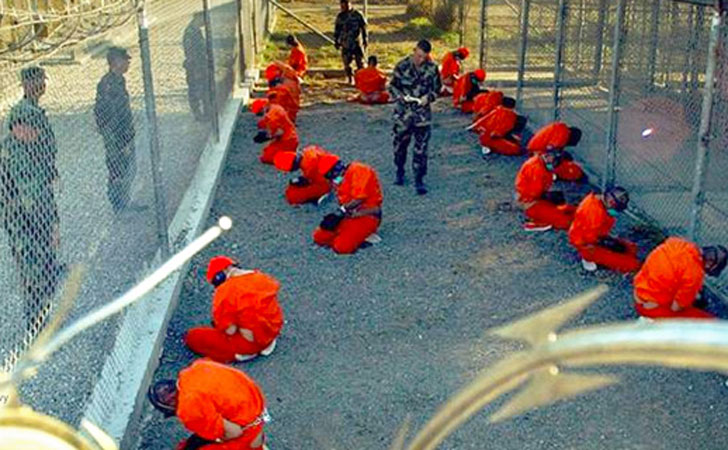Sentenced to death without trial
I have never witnessed my client, Saifullah Paracha, more depressed than when the federal judge denied his application to be released from Guantánamo Bay after 17 years. The ruling was 124 pages long, but could be distilled to a single line: an elderly man was being told that he should be left to die in the world’s most notorious prison.


I have known Saifullah for almost 15 years. He is a gentle and decent man. Neither the prosecutor nor the judge have ever laid eyes on him. I know him to be a brilliant businessman, rising up from poverty to run companies from Pakistan to New York. He is a sophisticate who travelled the world (until the Americans kidnapped him in Bangkok), avidly consumed western media, and displayed the American flag in the lobby of his office in Pakistan.
The Guantánamo guards were astounded that this elderly Muslim detainee could be so familiar with the Big Apple. Saifullah once gave investment advice to one of his many interrogators, and helped the man gain tens of thousands of dollars.
Saifullah knows the Afghan region far better than any American. In 2001, well before the tragic events of 9/11, Saifullah wrote to President George W Bush with advice on how it might be possible to reconcile the antagonistic parties of Afghanistan. He suggested lifting the sanctions against the Taliban – not because he was a supporter of their interpretation of Islam, but because the US and Afghanistan had long stood together, and only this way would the country emerge from the chaos that had devastated the people since the Russian invasion 20 years before.
In a second letter to President Bush, after the 9/11 attacks, Saifullah again counselled a peaceful solution. Many Taliban lacked education, he said, and needed to be brought along through moderate members. He recommended emphasizing the positive – they had, after all, almost eliminated the export of heroin to the heartlands of America – to bring them into the fold of peace. Instead, the US invaded, heroin exports resumed, and America is now 19 years deep in the longest war in its history.
The Guantánamo guards were astounded that this elderly Muslim detainee could be so familiar with the Big Apple. Saifullah once gave investment advice to one of his many interrogators, and helped the man gain tens of thousands of dollars
“Mr Paracha may well have desired to help people,” opined the federal judge, loftily. But he went on to say that there is “no necessary contradiction in being both a benevolent businessman and also a committed jihadist.” His actions, he was told, were “an attempt to conceal the depth of his support for the Taliban”.
With respect, this is nonsense – and bears no resemblance to the man I have known all these years. Saifullah is a sincere but moderate Muslim, no more a “jihadist” than my grandmother. His philanthropy extended to helping the poor and building hospitals, never to financing violence. It is true that he travelled to Afghanistan more than once to help the Afghan people, but if that is a crime, then I am a criminal too.
The judge also “decided” that if Saifullah met senior members of al Qaida in Afghanistan, long before 9/11, that must mean he sympathised with them. To date, I think I have provided free legal representation to perhaps 90 people alleged to be members of al Qaida, or some similar group: does that mean I am a jihadist? I have helped more than 400 alleged murderers avoid death row: does that mean I am dedicated to homicide? Of course not. I did it all pro bono – which means “for the good” – just as Saifullah sought to mediate between dissonant parties in the name of peace.
Saifullah recently suffered his third heart attack. That we plan to have him die in Guantánamo Bay is a stain on my country. All we ask is that he be allowed to return home to his family in Pakistan.
Clive Stafford Smith is the founder of Reprieve. He has helped secure the release of more than 70 prisoners from Guantánamo Bay
Leave a Comment